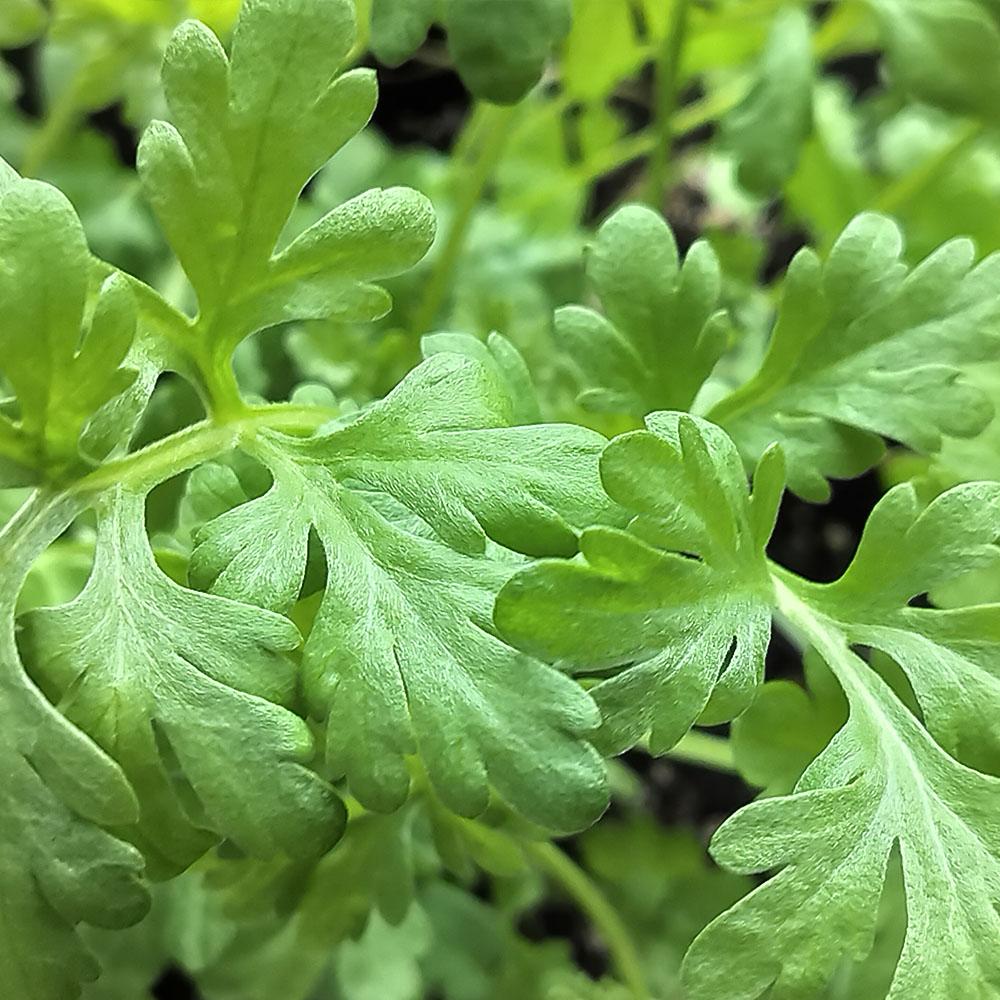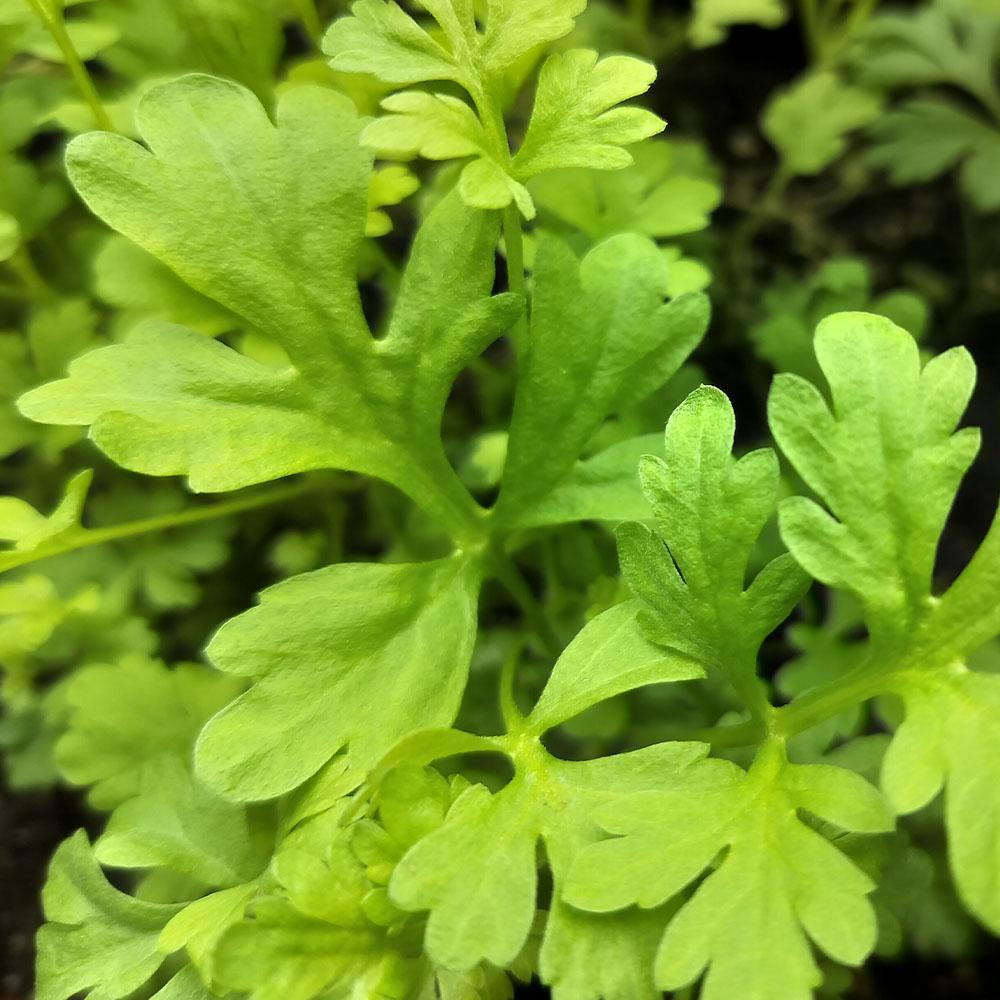No products in the cart.
Artemisia absinthium
A highly fragrant, medicinal and striking grey-green bush with yellow flowers.
Rated 0 out of 5
0 customer reviews
4,90 €
Only 39 item(s) left in stock!
SKU: pda290
Category: Bees and Butterflies, Bouquet, Culinary, Distillations, Evergreen, Fragrant, Frost Hardy, Grey Ladies, Medicinal, Rewild

Artemisia absinthium
4,90 €
Only 39 item(s) left in stock!
Artemisia absinthium is a highly fragrant, grey-green perennial that thrives in dry soils and sun-baked slopes.
The grey-green leaves are narrow and feathery, the camphor-like odor is powerful, happy in the sun, drought and disease tolerant…
- Harvest : July/August for the preparations of infusions and tinctures
- Recipes: can be found here
The flowers are small and pale yellow, contrasting beautifully against the sea of grey foliage.
💡 A dry and nitrogen-rich soil will accentuate the grey tint of her leaves.
NOTA BENE : Wormwood contains thujone, a neurotoxic compound that can be harmful in high doses. It can cause seizures, hallucinations, or nervous system issues if consumed excessively.
The Tale:
Traditionally, Artemisia vulgaris was used as a remedy for a variety of complaints, especially those of a gynaecological nature – this ranges from menstrual cramps, to bleeding, to pre, during and post-pregnancy troubles.
For this reason, the wormwood genus bears the name of the Greek goddess of childbirth, Artemis. Who has always been my favorite goddess – I have had a statue of her since I can remArtemisia absinthiumL’Artemisia absinthium est une plante vivace fortement parfumée, d’un vert grisâtre, qui prospère dans les sols secs et sur les pentes baignées de soleil.ember.
The other interesting aspect of this plant – and probably the more well known – is its extensive use in making liquor.
- Absinthe:
- Wormwood is a key ingredient in absinthe, a highly alcoholic spirit that was once believed to cause hallucinations. Therefore prohibited and punished, and now consequently the stuff of legend.
- The hallucination culprit was thought to be Thujone, but modern research suggests its levels were too low to cause hallucinations. I have always wondered if it could it have been that their tolerance was lower? The green fairy myth persists to this day though Absinthe is sold in many countries, though the thujone levels are strictly monitored and regulated.
- Vermouth & Bitters:
- Wormwood also appears as a key component in herbal liqueurs as it gives it its distinctive bitter flavor
- The word ‘wormwood’ seems to come from the Old English word wermod, but we are not sure what the initial word meant. We do know that the German cognate Wermut is the source of the term vermouth, used in French and English to describe a kind of wine that is traditionally flavoured with wormwood
According to Nicholas Culpeper, a ‘stinking breath’ can be cured by “drinking a glass of Wormwood beer every morning”. So you can slide a glass over to that family member who is chronically stinking into the conversation.
Other Names:
Wormwood
Origin:
North Africa, Eurasia
Discover more from plant d'Avenir
Subscribe to get the latest posts sent to your email.
| Weight | 0,5 kg |
|---|---|
| Planting Season | March to May, September to November |
| Flowering | July, August |
| Size | 0.8m H x 0.8m W |
| Exposure | Full Sun |
| Soil | Dry, Well-Draining |
Reviews
0
Rated 0 out of 5
0 customer reviews
5
0
4
0
3
0
2
0
1
0
Only logged in customers who have purchased this product may leave a review.
Related Products
Stachys byzantina
Silky white-grey leaves and tall striking flowers
Silky white-grey leaves and tall striking flowers
Rated 0 out of 5
Aegopodium podagraria ‘Variegata’
A popular light, green and white groundcover.
A popular light, green and white groundcover.
Rated 0 out of 5
Cerastium tomentosum var. columnae
A grey-green spreading ground cover from the mountains.
A grey-green spreading ground cover from the mountains.
Rated 0 out of 5
Nepeta x faassenii
Catnip is known for its grey-green, aromatic foliage and masses of lavender blue flowers.
Catnip is known for its grey-green, aromatic foliage and masses of lavender blue flowers.
Rated 0 out of 5
Potentilla anserina
A distinctly silvery, silky and lacy perennial.
A distinctly silvery, silky and lacy perennial.
Rated 0 out of 5
Koeleria glauca Blue Sprite
An ornamental, low growing blue grass
An ornamental, low growing blue grass
Rated 0 out of 5
Helichrysum orientale
A perennial with soft, ash gray foliage and yellow button flowers
A perennial with soft, ash gray foliage and yellow button flowers
Rated 0 out of 5
Sedum spectabile Septemberglut
A species of flowering plant in the stonecrop family – drought tolerant, with vibrant pink flowers and a spectacularly long flowering period.
A species of flowering plant in the stonecrop family – drought tolerant, with vibrant pink flowers and a spectacularly long flowering period.
Rated 0 out of 5
Artemisia alba subsp camphorata
A highly fragrant, grey-green bush.
A highly fragrant, grey-green bush.
Rated 0 out of 5
Jacobaea maritima
A wooly white perennial plant from the Mediterranean region.
A wooly white perennial plant from the Mediterranean region.
Rated 0 out of 5
Helichrysum italicum
An evergrey, fragrant perennial that will bring a distinctly Mediterranean atmosphere.
An evergrey, fragrant perennial that will bring a distinctly Mediterranean atmosphere.
Rated 0 out of 5
Tanacetum densum subsp amani
A shrublet composed of soft, finely divided silvery gray-white leaves.
A shrublet composed of soft, finely divided silvery gray-white leaves.
Rated 0 out of 5
Mertensia maritima
A deciduous perennial with fleshy, blue-grey-green leaves that naturally thrives on the wind and sea swept coasts
A deciduous perennial with fleshy, blue-grey-green leaves that naturally thrives on the wind and sea swept coasts
Rated 0 out of 5
Artemisia abrotanum
A highly fragrant, medicinal and striking grey-green bush.
A highly fragrant, medicinal and striking grey-green bush.
Rated 0 out of 5
Lavandula angustifolia
A highly aromatic, flowering perennial used for cooking in many cultures
A highly aromatic, flowering perennial used for cooking in many cultures
Rated 0 out of 5
Salvia sclarea – Clary Sage
A fuzzy perennial that is largely grown for its essential oil.
A fuzzy perennial that is largely grown for its essential oil.
Rated 0 out of 5
Artemisia Valerie Finnis
A semi-evergreen, aromatic variation on the theme of Artemisia.
A semi-evergreen, aromatic variation on the theme of Artemisia.
Rated 0 out of 5
Salvia officinalis
A fragrant herb used in many cultures for cooking and deserts.
A fragrant herb used in many cultures for cooking and deserts.
Rated 0 out of 5
recent view product
Delosperma Hardy Hybrid
Especially developed to withstand cold temperatures, snow, fire and drought.
Especially developed to withstand cold temperatures, snow, fire and drought.
Rated 0 out of 5
Ipheion uniflorum Alberto Castillo
Spring starflower – spring flowers on a garlicky bush
Spring starflower – spring flowers on a garlicky bush
Rated 0 out of 5
Rudbeckia hirta ‘Prairie Sun’
A self-seeding annual with bright yellow flowers
A self-seeding annual with bright yellow flowers
Rated 0 out of 5
Glechoma hederacea Variegata
A ground cover known for its fragrant, unusually variegated foliage
A ground cover known for its fragrant, unusually variegated foliage
Rated 0 out of 5
Phyllostachys nigra ‘Punctata’
An ornamental bamboo, known for its black stems and bright green foliage.
An ornamental bamboo, known for its black stems and bright green foliage.
Rated 0 out of 5















































There are no reviews yet.